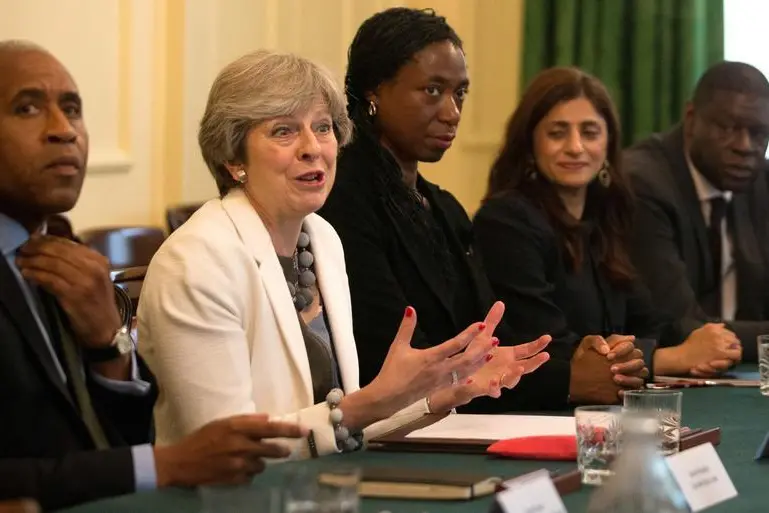PHOTO
LONDON - British Prime Theresa May’s energy plan has few political merits and even fewer economic ones. Her government said on Thursday it will cap the most commonly used energy prices until 2020 to ensure consumers pay less. The intention is laudable, but the biggest intervention since Britain privatised its energy industry three decades ago may do more harm than good.
Britons pay one of the lowest rates in western Europe per unit of energy consumed, according to Eurostat. Adjust for purchasing power differences, and they pay one of the lowest rates across the whole European Union. That may be because Britain has more major energy suppliers than most other EU countries and is one of a minority where the combined market share of the three largest suppliers is below 70 percent, according to Europe’s Agency for the Cooperation of Energy Regulators.
Many consumers are not benefiting from competition, though. Two-thirds of UK households pay so-called standard variable tariffs even though they could save money by moving to cheaper fixed-rate deals. Inertia, fears that changing providers is complex, and a fuzzy idea of potential savings may explain why regulator Ofgem found that less a fifth of customers switched suppliers last year. May calls the market “broken”.
Putting a limit on standard variable tariffs may not lead to a better outcome, though. Granted, an energy cap will in the short term cut most consumers’ bills. But a 2014 ACER report found that a regulated price acts as a gravitational force around which competing suppliers cluster. A cap therefore risks compressing the range of available tariffs and could push up prices if weaker competitors are squeezed out of the market.
Politics sometimes explain decisions that economics cannot. But May’s plan is politically flawed as well. The opposition Labour Party proposed a cap before the 2015 elections and has since gone further by talking of renationalising the energy industry.
There are better options. For example, regulators could force energy companies to put consumers on the cheapest fixed-rate tariff by default. Suppliers could also be required to inform clients of the cheapest tariff available in the market and savings they could make by switching. The latest intervention may force the industry to change. In the meantime, though, a price cap could hurt those it is supposed to help.
© Reuters News 2017
Britons pay one of the lowest rates in western Europe per unit of energy consumed, according to Eurostat. Adjust for purchasing power differences, and they pay one of the lowest rates across the whole European Union. That may be because Britain has more major energy suppliers than most other EU countries and is one of a minority where the combined market share of the three largest suppliers is below 70 percent, according to Europe’s Agency for the Cooperation of Energy Regulators.
Many consumers are not benefiting from competition, though. Two-thirds of UK households pay so-called standard variable tariffs even though they could save money by moving to cheaper fixed-rate deals. Inertia, fears that changing providers is complex, and a fuzzy idea of potential savings may explain why regulator Ofgem found that less a fifth of customers switched suppliers last year. May calls the market “broken”.
Putting a limit on standard variable tariffs may not lead to a better outcome, though. Granted, an energy cap will in the short term cut most consumers’ bills. But a 2014 ACER report found that a regulated price acts as a gravitational force around which competing suppliers cluster. A cap therefore risks compressing the range of available tariffs and could push up prices if weaker competitors are squeezed out of the market.
Politics sometimes explain decisions that economics cannot. But May’s plan is politically flawed as well. The opposition Labour Party proposed a cap before the 2015 elections and has since gone further by talking of renationalising the energy industry.
There are better options. For example, regulators could force energy companies to put consumers on the cheapest fixed-rate tariff by default. Suppliers could also be required to inform clients of the cheapest tariff available in the market and savings they could make by switching. The latest intervention may force the industry to change. In the meantime, though, a price cap could hurt those it is supposed to help.
© Reuters News 2017





















